- If you need immediate assistance, call 911 or go to the nearest hospital emergency room. For 911, be sure to tell the operator that it is a “mental health emergency” and ask for emergency responders with Crisis Intervention Team (CIT) training
If you are having thoughts of death or suicide,
call 988
OR text DBSA to 741-741

- If you are feeling out of control, it’s important to seek help immediately—even if you are not having suicidal thoughts.
National Crisis lines
- Dial 988 to speak with a trained Crisis Counselor.
- Text HOME to 741-741 for 24/7 to text with a trained Crisis Counselor.
- Call 1-800-662-HELP for free, confidential, 24/7, 365-day-a-year treatment referral and information service.
- For Veterans, call 988 then press 1 OR text Crisis to 838-255
- For LGBTQIA+ call 988 then press 3
- You can prepare for a crisis ahead of time to avoid feeling helpless and overwhelmed in the moment.
How can you prepare for a crisis?
If you feel you are at risk of a crisis because of your condition, disorder or history, you can create a crisis plan to help you or those close to you in a time of need.
What should you include in your crisis plan?
- Doctor(s)’ name(s) and contact information
- Contact information of support group and other trusted friends/family members
- Other health problems and medications
- Allergies to/intolerance of any medication
- Insurance or Medicaid information and preferred treatment facilities
- Things that might trigger an episode, such as life events, travel, physical illness, or work stress
- Warning signs such as talking very fast, paranoia, lack of sleep, slowed down movement, excessive alcohol or drug use
- Things people can say that are calming and reassuring
- Things people should do in crisis such as take away car keys and lock up anything dangerous such as weapons and medications
- Things emergency staff can do, such as explain things, talk slowly, observe personal space, or write things
- Reasons life is worthwhile and recovery is important
